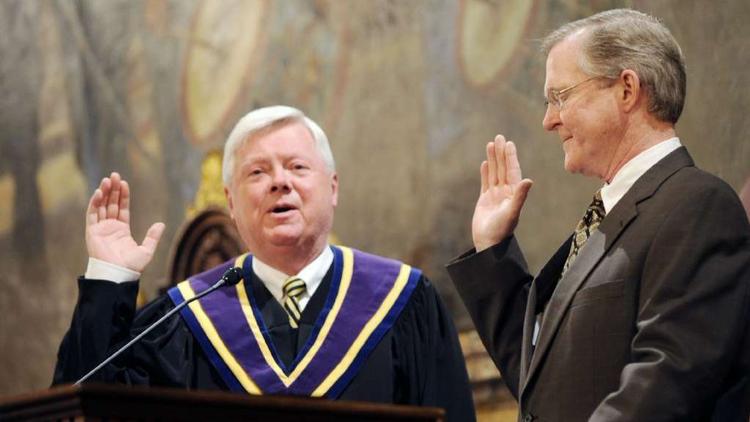|
Pennsylvania Supreme Court tweaks grand jury secrecy rules
By Steve Esack
The Pennsylvania Supreme Court has tweaked secrecy rules related to how defense lawyers can share testimony or evidence related to clients called before grand juries. The 5-2 ruling issued Tuesday stemmed from a legal dispute that arose during the statewide grand jury investigation of clergy child sex abuse in six Catholic dioceses, including Allentown. The justices ruled that a grand jury nondisclosure form, created by the attorney general’s office, unfairly muzzled defense lawyers’ rights and their abilities to serve their clients. The ruling allows defense lawyers to seek their clients’ permission to publicly share the content and scope of their testimony to the grand jury, which operates in private. Witnesses have always been permitted to disclose their own testimony. “The obligation of confidentially generally extends to all matters occurring before the grand jury, which includes, but is not limited to, what transpires in a grand jury room,” wrote Chief Justice Thomas Saylor. “A lawyer otherwise subject to secrecy, however, may disclose a client’s own testimony to the extent that the client would otherwise be free to do so under applicable law.” Earlier this month, the 40th grand jury issued a partially redacted report outlining how 301 priests abused more than 1,000 children since the 1940s. Although the redacted report has been made public, legal fights persist before the high court. Next month, the justices will hear oral arguments from lawyers for about two dozen priests who don’t want their names published in the report, contending the grand jury process does not permit them proper defense rights. Tuesday’s ruling dealt with a different appeal filed by defense lawyers for the Harrisburg and Greensburg dioceses. The dioceses’ lawyers argued the nondisclosure agreement form was so strict, it prevented them from discussing their clients’ cases with anyone outside the courtroom. The form was created by the attorney general’s office in about 2011 and all grand jury judges have the option of using it. It reads: “I swear or affirm that, under penalty of contempt, I will keep secret all that transpires in the Grand Jury room, all matters occurring before the Grand Jury, and all matters and information concerning this Grand Jury obtained in the course of the representation, except when authorized by law or permitted by the Court.” Harrisburg and Greensburg dioceses’ lawyers refused to sign the form and appealed its legality. State prosecutors claimed the form was a simple formality that reiterated for all lawyers the secrecy provisions the Legislature already created in the decades-old Investigating Grand Jury Act. Writing for the majority, Saylor said the dioceses’ lawyers made exaggerated claims that the form prevented them from discussing the case with their clients or with their co-counsel. Nonetheless, Saylor wrote, the form exceeded “the secrecy requirements” outlined in state law because it carried the threat of penalties if disclosures were made of “all matters and information” before a grand jury. Citing the Supreme Court’s domain over all court matters, Saylor ordered the form to be rewritten to say in part: “I understand that — with the explicit, knowing, voluntary, and informed consent of my client or clients … I may disclose the content of a client witness’s own testimony precisely to the extent that the client-witness may do so under applicable law.” In his dissenting opinion, Justice David Wecht claimed the majority overstepped its legal authority. State law says “only” a grand jury judge can determine when grand jury secrets are released. By allowing defense lawyers to serve as a client’ “mouthpiece” in grand jury proceedings, the court was legislating from the bench, Wecht wrote. Joining Saylor in the majority were justices Max Baer, Debra Todd, Kevin Dougherty and Sally Updyke Mundy. Like Wecht, Justice Christine Donohue filed her own objections. Contact: steve.esack@mcall.com
|
.
Any original material on these pages is copyright © BishopAccountability.org 2004. Reproduce freely with attribution.
